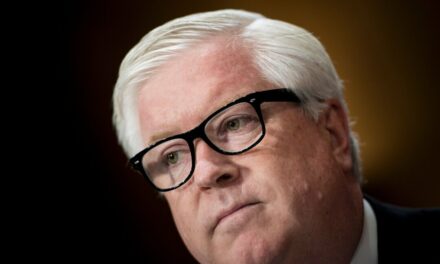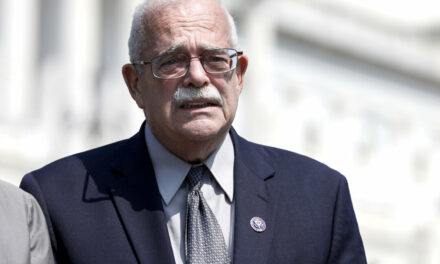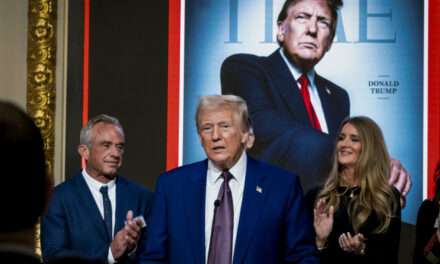We support our Publishers and Content Creators. You can view this story on their website by CLICKING HERE.
Ahmad al-Sharaa is the leader of Hayat Tahrir al-Sham, a Sunni Islamist faction currently designated as a terrorist group by the U.S. government.
President Joe Biden’s administration has retracted its $10 million counter-terror bounty against Ahmad al-Sharaa, an insurgent leader who played a key role in driving Syrian leader Bashar al-Assad from power in recent weeks.
Sharaa, who is also known as Abu Mohammed al-Golani, is the leader of Hayat Tahrir al-Sham (HTS), a Sunni Islamist faction currently designated as a terrorist group by the U.S. government. HTS is a rebrand of Jabhat al-Nusra, which formed as an offshoot of al-Qaeda.
Leaf’s meeting with Sharaa and the decision to drop the bounty comes as the Biden administration continues to assess post-Assad Syria.
The Biden administration has cheered Assad’s fall from power but has been more ambiguous about its view of HTS’s role in post-Assad Syria.
The U.S. State Department said Leaf was using the meeting with Sharaa to emphasize the administration’s hopes the post-Assad government will respect the rights of women, and of ethnic and religious minorities.
“He came across as pragmatic,” Leaf said of her meeting with the HTS leader. “Of course, we are—we’ve been hearing this for some time, some very pragmatic and moderate statements on various issues from women’s rights to protection of equal rights for all communities, et cetera.”
Leaf said it was a good initial meeting, but reiterated, “We will judge by deeds, not just by words.”
She said Sharaa also committed to ensuring terrorist factions cannot pose a threat within Syria or to use Syria as a platform from which to threaten the surrounding region.
It remains to be seen if these diplomatic discussions and the decision to withdraw the bounty against Sharaa will pave the way for further actions, like a reversal of the terrorism designation against HTS or U.S. recognition of its transition government.
Leaf shared few specifics on what deliberations may be at play regarding sanctions and the HTS terror designation. She said she expects there will be a lot of internal pressure among groups in Syria to meet “the kind of requirements that we would have in terms of sanctions.”
While Assad’s decision to flee Syria marks the end of one chapter in a civil war that has raged since 2011, other factions are still fighting for power across the country.
The U.S.-backed Syrian Democratic Forces (SDF) have recently clashed with forces backed by Turkey, an ally of the United States through the North Atlantic Treaty Organization.
The Israeli military has also established a foothold inside southwest Syria, declaring a buffer zone against any threats that might arise against Israel in the post-Assad power vacuum.

 Conservative
Conservative  Search
Search Trending
Trending Current News
Current News 







